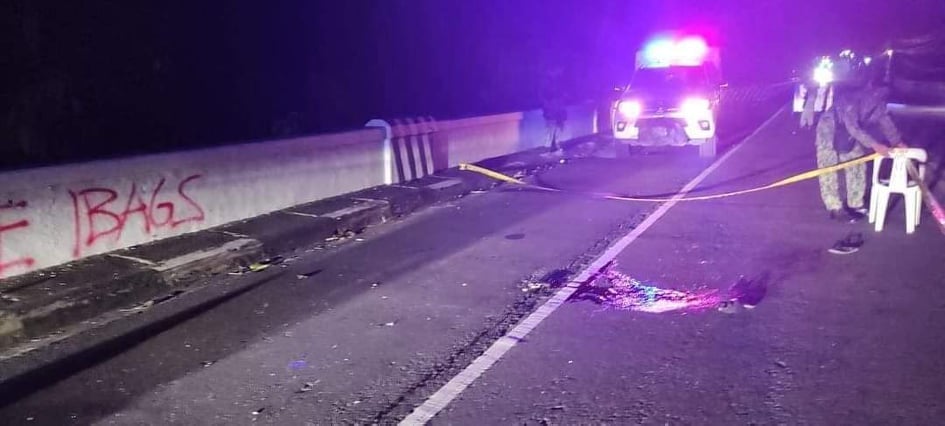CHR probing alleged torture of 2 Albay activists

Photo shows the unfinished protest slogan that activists Marlon Naperi and Jemar Palero were spray-painting before they were killed in what Albay Police said was a shootout. Image from Facebook / Anakbayan
With the ongoing investigation of the Commission on Human Rights (CHR) into the death of two activists in Albay, the commission said it sought to verify accounts that the victims were unarmed during the incident and that one of the victims was said to have signs of torture.
In a statement on Friday, the CHR also said that arbitrary killings such as those of activists Jaymar Palero, 22, and Marlon Napire, 40, in Guinobatan, Albay, were a “clear assault to a person’s right to life.”
“Continuous attacks and deaths of activists remain to be a cause of concern for CHR. These incidents have repercussions on the people’s exercise of freedom of expression, and right to raise complaints and petition action from government without fear of punishment or reprisals,” the CHR said.
The commission said it was already “moving in its investigation” on the death of Palero and Napire who were shot in what the police said was a “shootout,” after the victims fought back on June 26, the day President Duterte delivered his last State of the Nation Address (Sona).
Hours before the Sona, Palero and Napire were caught by roving police spray-painting a protest slogan in Guinobatan.
Article continues after this advertisement“Through our regional office in Region 5, the CHR has already been in touch with the chief of police of Guinobatan, who was since relieved of his post following the incident, and statements from the victims’ family have also been gathered,” said the CHR, which proceeded with the probe motu proprio.
Article continues after this advertisementTo facilitate the probe of the claims of torture on Palero, the CHR said it extended emergency cash assistance to his family so that an autopsy of his remains could be conducted.
The CHR also said it welcomed the action of the Department of Justice to authorize the National Bureau of Investigation to also investigate the activists’ deaths.
“At the same time, we call on the government to move on its commitment to uphold the rights of all, including even those who express protests against government policies and actions. Dissent, after all, is part of a thriving democracy, which ought to be respected,” the commission said.